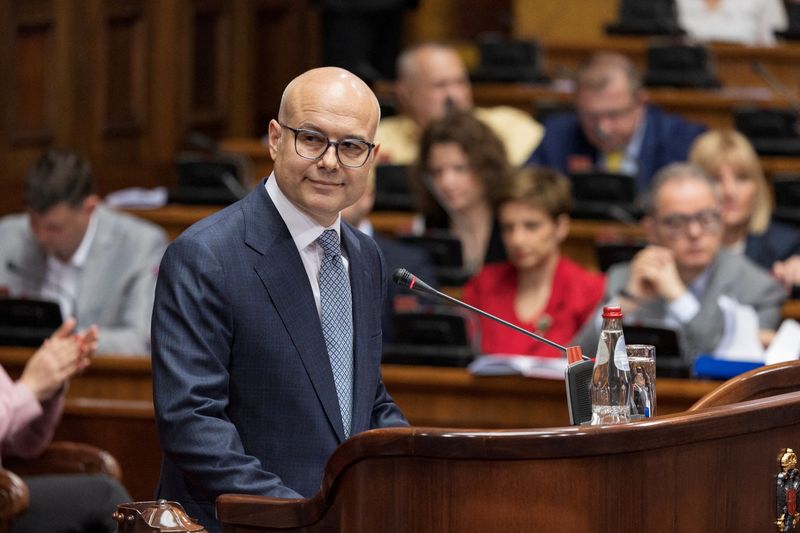SARAJEVO (Reuters) – Serbia's parliament approved a coalition government on Thursday. Newly elected Prime Minister Miloš Vucevic has been described as a “continuation government” that will guide the Balkan nation through geopolitical challenges and tensions with Kosovo.
Most of the 31-member government's cabinet ministers come from five smaller parties that form a coalition with the ruling Serbian Progressive Party (SNS), which won the most votes in last December's national elections; He's new.
The government, which was approved with 152 members in the 250-member parliament, includes two pro-Russian politicians whom the United States has sanctioned for corrupt activities, as well as two pro-Russian politicians who have not received enough votes to enter parliament. This includes leaders of far-right parties who were not present. .
“My government will, for the most part, have continuity,” said Vucevic, a close ally of President Aleksandar Vucic who took over the party leadership after Vucic resigned last year. .
Vucevic, a lawyer by profession, served as deputy prime minister and defense minister in the government of his predecessor, Ana Brnabic.
He said Serbia's biggest challenge will be the fight over Kosovo, a former southern province that declared independence in 2008 but which Serbia considers part of its territory.
Opposition politicians who voted against the government criticized the size of the government, saying it was the result of “political bargaining”. They also accused Vucevic of putting the fight against corruption and crime at the bottom of the government's priorities.
In a three-hour speech introducing his policies to MPs, Mr Vucevic said his government would continue to guide its foreign policy on the basis of political independence and military neutrality, meaning Serbia's aspirations to join Europe and Russia's He said this means that Japan must strike a balance between Japan and China. Union.
Vucevic said that full membership in the EU is Serbia's strategic goal, but also stressed the importance of partnership with China, where President Xi Jinping is scheduled to visit Serbia from May 7-8.
He also said that Serbia, which has condemned Russia's invasion of Ukraine at the United Nations, would not bow to pressure to join sanctions against Russia.
Vucevic said the government would propose four months of compulsory military service to strengthen the country's security.
He also said that Serbia, which has more than doubled its gross domestic product (GDP) to 69.5 billion euros ($74.48 billion) in the past decade, is on track to reach 94.2 billion euros by 2027. He said he aims to expand.
(1 dollar = 0.9332 euro)
(Reporting by Daria Sito-Stic; Editing by Josie Kao)


